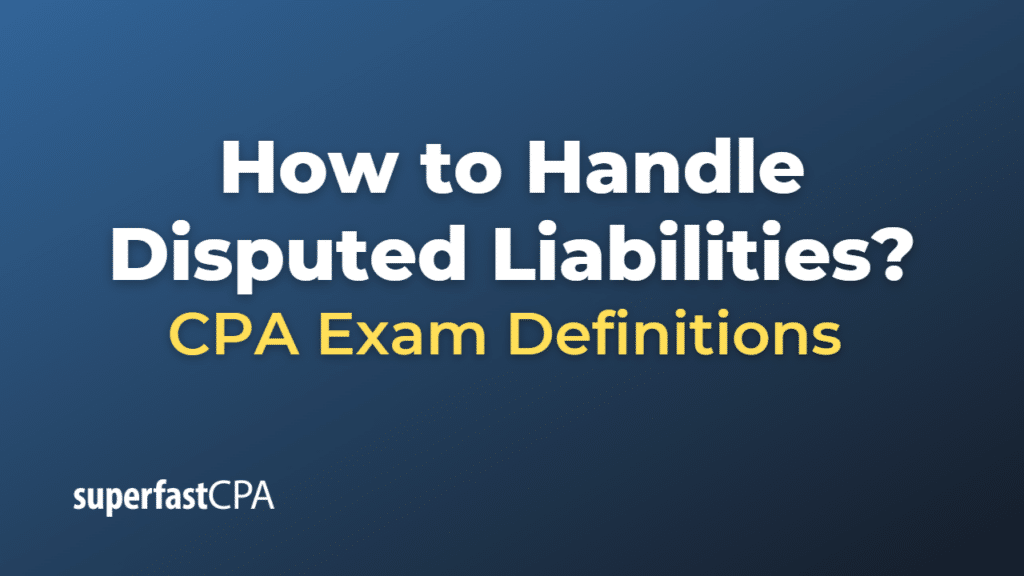How to Handle Disputed Liabilities
Handling disputed liabilities involves a process of investigation, negotiation, and possible legal resolution. Here are some general steps you can take when faced with disputed liabilities:
- Verification: If a liability is disputed, the first step is to verify all the details related to the liability. This involves going through the contractual terms, invoices, receipts, communications, and any other related documentation.
- Engage with the Other Party: After your initial review, engage with the other party in a constructive dialogue. Try to understand their perspective and explain your own. It’s often beneficial if these discussions can lead to a resolution without further legal intervention.
- Legal Review: If the dispute cannot be resolved through negotiation, it may be necessary to conduct a legal review. This involves engaging legal counsel to review all related documentation and provide advice based on applicable laws and regulations.
- Alternative Dispute Resolution: Before resorting to litigation, consider alternative dispute resolution methods such as mediation or arbitration. These methods can be less costly and time-consuming compared to court litigation.
- Litigation: If all else fails, you may need to resort to litigation. This is usually the last resort due to its cost, complexity, and the time it can take.
- Accounting Treatment: While the dispute is ongoing, the disputed liability should be reported in your financial statements based on its likelihood of payment. If it’s probable and the amount can be estimated, you should record it as a liability. If the likelihood is reasonably possible or not determinable, it should be disclosed in the notes to the financial statements.
Please remember that each disputed liability case is unique, and it’s always recommended to engage with legal and financial professionals to navigate the process. These general steps are a guideline and may not apply in all situations.
Example of How to Handle Disputed Liabilities
Let’s use a hypothetical situation involving a company named HighTech Inc. and a supplier, SuppliesPlus.
HighTech Inc. receives an invoice from SuppliesPlus for $100,000 for certain electronic components. HighTech disputes this liability, claiming that the correct invoice amount should be $80,000 due to an agreement on a discount that was not applied.
- Verification: HighTech’s finance team reviews the purchase orders, delivery receipts, emails, and the agreed terms of the contract. They confirm the discount was indeed agreed upon but was not reflected in the invoice.
- Engage with the Other Party: HighTech contacts SuppliesPlus and explains the situation, presenting the evidence of the agreed-upon discount.
- Legal Review: SuppliesPlus disagrees, claiming that the discount was conditional on an earlier payment term that HighTech did not meet. At this point, HighTech involves their legal team to review the contractual terms.
- Alternative Dispute Resolution: Both parties agree to involve a mediator to help resolve the dispute. The mediator reviews all the documentation and conducts meetings with both parties.
- Resolution: The mediator concludes that while the discount was indeed conditional, SuppliesPlus did not communicate this condition clearly. The parties agree to settle the liability at $90,000.
- Accounting Treatment: During the dispute, HighTech would have disclosed this as a contingent liability in the notes of its financial statements. Once the dispute is resolved, they will adjust the payable to SuppliesPlus to $90,000 in their accounting records.
Remember, this is a simplified example. Real-world scenarios can be much more complex and might require involving various professionals like lawyers, mediators, accountants, etc. Disputes can also be lengthy, so it’s essential to manage them efficiently and effectively.













